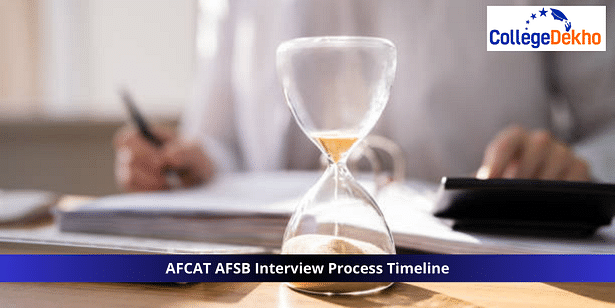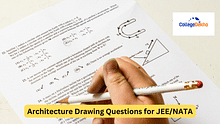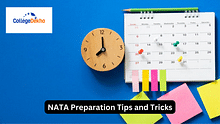- AFCAT AFSB Interview Process Timeline 2024 Overview
- AFCAT AFSB Interview Process: Documents Required
- AFCAT AFSB Interview: DAY 1 - Reporting Day + Screening
- AFCAT AFSB Interview: DAY 2 - Psychology Test
- AFCAT AFSB Interview: DAY 3 - Group Test I
- AFCAT AFSB Interview: DAY 4 - Group Test II
- AFCAT AFSB Interview: DAY 5 - Conference
- Faqs

AFCAT AFSB interview process timeline 2024: The Indian Air Force Selection Board conducts the AFCAT AFSB interview on behalf of the Service Selection Board (SSB). Applicants who have been shortlisted for an exhaustive medical examination will be called upon for this second round of the AFCAT selection process. Those who pass the online written exam will be invited to participate in the five-day AFSB interview process or SSB, which will be held at numerous Air Force Selection Board facilities across India. After adding up their scores from the written exam and AFSB interview and placing them on the All-India merit list, candidates will be honoured as Indian Air Force officers.
The AFCAT AFSB interview is regarded as one of the most challenging interviews in India. It is open to applicants for the Flying and Ground Duty (Technical & Non-Technical) branches who pass the AFCAT 2024 exam. It evaluates candidates' cognitive and motor abilities as well as their "officer-like qualities" by employing different psychological test batteries and group projects. In this article, we shall discuss the detailed AFCAT AFSB interview process timeline from day 1 to 5 along with a list of documents that students should carry for verification.
AFCAT AFSB Interview Process Timeline 2024 Overview
Candidates who successfully clear the AFCAT online written exam proceed to the AFSB testing rounds. The AFSB interview is conducted in two stages for both male and female candidates as a part of the AFCAT selection process:
Phase I - Reporting & Screening
Phase II - Psychological Tests, Group Tests, Interview, and Board Conference
All candidates must report to their respective AFSB interview exam centres promptly before 8:30 AM. The call letter will provide details such as reporting time, interview centre venue, date, and other relevant information in advance. Let's delve into the day-wise AFCAT AFSB interview process below.
AFCAT AFSB Interview Process: Documents Required
Aspirants need to bring the following documents when they participate in the AFCAT AFSB interview process. As stated in the official announcement, candidates who are unable to provide the required documentation or who do not comply with the official eligibility criteria will not be permitted to participate in the interview process and will be withdrawn without receiving any teaching assistance. The following is a list of documents needed for verification while participating in the AFCAT AFSB interview process:
Recently clicked 20 coloured passport-sized photos on a white background.
The University's acceptable provisional degree certificate.
Original, valid commercial pilot's licence from the DGCA, if relevant.
Original or provisional marksheets, two verified photocopies, and the graduation and post-graduate degree certificates.
Original certificate from the NCC (if applicable).
Original marksheets from high school and matriculation, as well as two attested photocopies for the verification of date of birth, are required.
Bus and train tickets for inbound travel (for TA reimbursement)
Final-year candidates may present certificates bearing the official seal and stamp of the institution, as given by the college principal.
Employer: NOC of PSUs or the local, state, or federal governments.
Related Reads:
AFCAT AFSB Interview: DAY 1 - Reporting Day + Screening
At the Air Force Selection Board, Day 1 is the "Reporting Day," and SSB testing kicks off with a screening round on the same day.
Candidates can either report directly to the AFSB Centre or a day earlier to the Movement Control Officer (MCO). If reporting to the MCO, candidates will be transported to the AFSB Interview Centre via military vehicles.
An Opening Address is conducted by AFSB Board officers on the same day, providing candidates with information about their 5-day stay.
Document verification follows, and candidates receive a temporary chest number for communication during the AFSB interview.
After completing the reporting formalities, the screening test round begins, consisting of the AFSB Officers Intelligence Rating Test, Picture Perception and Description Test, and Story Narration and Discussion Test.
AFSB Officer Intelligence Rating Test (OIR Test)
Candidates aiming to succeed in the Air Force Selection Board OIR Test must enhance their logical reasoning and analytical aptitude skills. The test involves solving two booklets with 50 questions each, covering verbal and non-verbal tests. Each booklet is given a time limit of 30 minutes.
OIR Test Type | Total Questions | Time Duration |
|---|---|---|
Verbal Test | 50 | 30 minutes |
Non-Verbal Test | 50 | 30 minutes |
AFSB Picture Perception and Description Test (PP & DT)
PP & DT are two parts of the same test. Here are the details of the Picture Perception and Description Test (PP & DT):
In Picture Perception (PP), an image is displayed for 30 seconds. Candidates then have 1 minute to note down details like mood, sex, age, activities, and context from the image. Subsequently, they get 4 minutes to craft a 70-word story based on it.
Candidates are grouped (10-15 members) for the Discussion Test (DT), forming a semi-circle. Each candidate has one minute to present their story, followed by a group discussion to create a collective story, blending elements from each candidate's narrative. This stage is also referred to as the Story Narration and Discussion Test.
AFSB Phase 1 Elimination
Following the three screening tests, results are declared post-lunch. Successful candidates proceed to AFSB interview phase 2, where they must complete the Personal Information Questionnaire (PIQ) for document verification. A new chest number is assigned for this stage. Rejected candidates receive a Travel Allowance to depart from the centre. Two important points regarding AFSB Interview screening elimination are as follows:
Travel Allowance is granted only to first-time candidates, not those reappearing.
Elimination applies exclusively on the 1st day and the 5th day.
AFCAT AFSB Interview: DAY 2 - Psychology Test
In the second phase of the AFSB interview process, four psychological tests aim to evaluate candidates' mental stability, perception, personality traits, and unconscious strengths and weaknesses for effective performance in defence forces. Candidates respond to questions based on their perception in each psychological test, with no right or wrong answers.
Tests | Description |
|---|---|
Thematic Apperception Test (TAT) | The Thematic Apperception Test assesses candidates' realistic and imaginative skills to gauge how they, as officers, conclude in challenging situations. Candidates view 12 pictures, with 11 being unclear and the last one a blank placard. Each picture is shown for 30 seconds, followed by 4 minutes to write a story. The stories are then analyzed to evaluate candidates' unique representation of facts, ideas, and assumptions. |
Word Association Test (WAT) | In the Word Association Test, candidates are presented with 60 words on the screen for 15 seconds each. After each word, they write a sentence, creating a total of 60 sentences. |
Situation Reaction Test (SRT) | The Situation Reaction Test is a crucial stage that assesses candidates' strong mindset and decision-making skills as officers. Candidates receive a booklet with 60 different scenarios and must write their responses within 30 minutes. The answers should reflect their unique perspective and display a strong understanding of their conscious and subconscious minds when reacting as officers to various situations. |
Self-Description Test (SDT) | The Self-Description Test requires candidates to write paragraphs describing themselves. They address opinions from parents, teachers, friends, and others, along with self-assessment questions about skill development, strengths, weaknesses, and more. The SDT exercise is time-limited to 15 minutes. |
AFCAT AFSB Interview: DAY 3 - Group Test I
On Day 3 of the AFSB interview process, candidates undergo Group Test 1, one of the GTO Tasks in SSB. This involves outdoor tests to assess their group performance, conducted by a Group Testing Officer. Here are the Group Task-I activities:
Group Tasks | Description |
|---|---|
Group Discussion (GD) | Candidates engage in two GD sessions on socio-political issues and current affairs. Each discussion lasts for approximately 20-30 minutes, testing social cooperation, self-confidence, communication, speaking, and authoritative skills. |
Group Planning Exercise (GPE) | Also known as Military Planning Exercise, candidates, in groups of 8-12, solve a problem with a 2D or 3D structure. They must come up with a common solution, explaining it using a map. The round assesses individual leadership, mental abilities, and team leadership skills. |
Progressive Group Task (PGT) | Candidates, as a group, tackle 4 obstacles using materials like wooden planks and ropes. They must efficiently use these materials to overcome various obstacles in the shortest time. |
Half Group Task (HGT) | Similar to PGT, the group is divided into two halves, competing against each other in overcoming hurdles. |
Group Obstacle Race (GOR) or Snake Race | In GOR, candidates navigate 6 obstacles while sticking to a rope like a snake. This task tests individual sportsmanship, fitness, and team management skills. The entire group faces consequences for individual mistakes. |
AFCAT AFSB Interview: DAY 4 - Group Test II
On Day 4 of the AFSB interview process, the remaining five GTO tasks out of a total of nine are conducted. Here are the group tests for the AFSB interview conducted on this day:
Group Tasks | Description |
|---|---|
Lecturette | Candidates participate in a lecture round, similar to an impromptu speech competition. They speak for 3 minutes on one of the given topics, testing their officer-like speaking and interactive skills. |
Individual Obstacles (IO) | In the IO task, candidates overcome 10 obstacles in 3 minutes. Each task is marked based on difficulty. Tasks include jumping over a slide, long jump, high jump, zig-zag balance, walking on a wooden log, high-screen jumping on platforms like Burma Bridge, Tarzan swing, jumping through a tyre, and more. |
Command Task (CT) | In the CT AFSB interview group task, one candidate becomes the commander and selects their team. The commander guides the team in clearing obstacles, testing candidates’ leadership and observation qualities as an officer. |
Final Group Task (FGT) | Similar to the PGT round in the earlier AFSB Interview group test 1, candidates are grouped into larger units and must solve more challenging tasks than HGT and PGT in the shortest possible time. |
Personal Interview
The Personal Interview round stands out as a critical aspect of the AFSB interview process. Candidates engage in one-to-one interviews with the Interviewing Officer (IO), typically scheduled from the 2nd to the 4th day after completing daily tasks. The interview covers a range of topics, including daily activities, work, education, personal experiences, individual performance levels, and general awareness.
Computerised Pilot Selection System (CPSS)
The Computerised Pilot Selection System (CPSS), formerly known as the Pilot Aptitude Battery Test (PABT), is specifically for candidates opting for the flying branch of the Indian Air Force. This one-time test occurs after Day 4 of the AFSB Interview process, evaluating candidates' hand and leg movements, vision, and sensory skills through the following test batteries:
Instrument Battery Test
Sensory Motor Apparatus Test (SMAT)
Control Velocity Test (CVT)
AFCAT AFSB Interview: DAY 5 - Conference
On the final or 5th day of the AFSB interview process, known as the judgment day, the Board Conference begins with the assessor's closing address, followed by the main conference between candidates and the Board.
AFSB officers, who participated in the earlier evaluation process, discuss the performance of candidates in psychological and group tests. Subsequently, candidates face a panel of officers who assess them on various parameters, including personality, individual strengths and weaknesses, team dynamics, presence of mind, and performance in the AFSB testing.
Each candidate then appears individually before the board, undergoing an overall evaluation through Board recommendations. Candidates on the borderline may be presented with certain situations before a collective decision is reached. Post the announcement of the AFSB Interview result, shortlisted candidates proceed to the AFCAT Physical Standard Test, while others leave the centre immediately.
Note: The all-India merit list will be prepared considering candidates' performance in the Written Test and AFCAT AFSB interview, along with meeting the specified physical and medical standards. The list will also factor in the number of vacancies available for different branches and sub-branches.If you have any other doubts or queries, write to us in the QnA Zone. You can fill out the Common Application Form (CAF) or call the toll-free number 1800-572-9877 for any admission-related queries. For more NIFT-related exciting information, stay tuned to CollegeDekho!

















Similar Articles
NCHMCT JEE 2024 Exam Centres: State-wise List, City Intimation Slip
List of Documents Required for NCHMCT JEE Counselling 2024
NCHMCT JEE 2024 Application Form Correction: Important Dates, Details to be Edited
Hotel Management Vs Tourism and Travel Management: Courses, Eligibility, Colleges, Fees, Scope, Salary
Top 5 Internships For Hotel Management Students - Check Stipend, Duration & Application Process
How to Choose a Hotel Management College After 12th: Tips, Factors to Consider